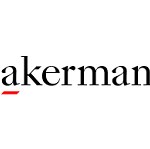-
Is there a legal definition of a franchise and, if so, what is it?
Under French law, there is no statutory definition of a franchise. Nonetheless, jurisprudence has consistently provided a stable and widely accepted interpretation. A ruling from the Toulouse Appellate Court rendered on 25 May 2004 (no. 02/02808) provided a definition that has been ever since:
“A franchise contract is a bilateral agreement in which a franchisor grants a franchisee the right to use the franchisor’s brand name, marketing materials, and management system to conduct business. The franchisor has tested the management system, and it is reasonably expected to provide a competitive advantage that will enable a diligent franchisee to conduct profitable business. The following three elements are necessary for a franchise contract to be valid:
- The existence of identified, secret, and substantial know-how that can be passed on and allows the franchisor’s success to be repeated, giving the franchisee a substantial advantage over the competition.
- Assistance both when the business is launched and during the term of the contract.
A brand name likely to attract a pre-existing clientele.“
In 2022, in its Guidelines on vertical restraints (2022/C 248/01), the European Commission also provided a definition of the franchise agreement:
“Franchise agreements, except for industrial franchise agreements, are an example of know-how being communicated to the buyer for marketing purposes. Franchise agreements contain licences of IPRs relating to trademarks or signs, and know-how for the use and distribution of goods or the provision of services. In addition to the licence of IPRs, the franchisor usually provides the franchisee with commercial or technical assistance for the duration of the agreement, such as procurement services, training and advice on real estate and financial planning. The licence and the assistance provided are integral components of the business method being franchised.”
As a result, under French law, a franchise agreement must meet three requirements: the franchisor must provide trademark signs, know-how and assistance.
-
Are there any requirements that must be met prior to the offer and/or sale of a franchise? If so, please describe and include any potential consequences for failing to comply.
There are no administrative formalities specifically required under French law prior to offering or selling a franchise.
However, before offering or selling a franchise, the franchisor must have tested their know-how through a pilot franchise. The pilot franchise has three main goals: testing and improving the efficiency of the concept, proving the efficiency and the competitive advantage granted of the know-how and providing a good example and information for any future franchisee.
The franchisor may directly manage this pilot franchise, or the pilot franchise must be concluded with the company that will experiment it.
However, the pilot franchise is not a mandatory obligation, and a decision of the Paris Appellate Court dated 9 January 2019 (n°16/21425) held that the only prerequisite is to have the franchisor’s know-how tested beforehand.
If the franchisee has not had the opportunity to test the know-how, they may later be able to claim that the contract be declared null and void on the basis that they were deceived in signing the contract.
-
Are there any registration requirements for franchisors and/or franchisees? If so, please describe them and include any potential consequences for failing to comply. Is there an obligation to update existing registrations? If so, please describe.
Franchise agreements are not subject to any specific registration requirements beyond those generally applicable to French legal entities prior to entering into contractual obligations.
-
Are there any disclosure requirements (franchise specific or in general)? If so, please describe them (i.e. when and how must disclosure be made, is there a prescribed format, must it be in the local language, do they apply to sales to sub-franchisees) and include any potential consequences for failing to comply. Is there an obligation to update and/or repeat disclosure (for example in the event that the parties enter into an amendment to the franchise agreement or on renewal)?
The franchisor is subject to two distinct legal disclosure obligations.
The first is a general requirement provided under Article 1112-1 of the French Civil Code, which establishes a precontractual duty of information for all contracts:
“The party who knows information of decisive importance for the other party’s consent must inform the other party if the latter is legitimately unaware of this information or has confidence in the other party.
However, this duty to inform does not apply to the estimation of the value of the service.
Information that has a direct and necessary connection with the content of the contract or the capacity of the parties is of decisive importance.
The burden of proving that the other party owed him information lies with the party who claims that information was due to him, and the burden of proving that the other party provided the information lies with that party.
The parties may neither limit nor exclude this duty.
In addition to the liability of the party who was bound by it, a breach of this duty to inform may result in the annulment of the contract under the conditions set out in Articles 1130 and following.”
Pursuant to this provision, it is an obligation for any party to the contract who knows an information which is essential to the other party’s consent is obligated to share it with them if they are legitimate not to be aware of it. This obligation does not apply to information related to the value. failure to comply with this requirement could result in the contract being declared null and void under Articles 1130 and 1131 of the French Civil Code.
In addition to this general obligation, the franchisor must comply with a specific obligation that applies to distribution agreements. The franchisor must also provide the franchisee with a “Document d’information précontractuel” (DIP) i.e. a pre-contractual information document. According to Article L.330-3 of the French Commercial Code, the communication of this document is mandatory:
“Any person who makes a trade name, brand or trademark available to another person, requiring from that person an exclusivity or quasi-exclusivity for the exercise of his activity, is required, prior to the signature of any contract concluded in the common interest of both parties, to provide the other party with a document giving sincere information, enabling him to make a commitment in full knowledge of the facts.”
According to this provision, the precontractual information obligation only applies to contracts that include an exclusivity or quasi-exclusivity component. These rights may include supply exclusivity, distribution exclusivity, territorial exclusivity, and more. Franchise agreements generally include an exclusivity clause.
Article R.330-1 of the French Commercial Code details the required information for this document:
-The annual accounts from the two previous years;
-A presentation of the network that includes:
- the list of the franchisees and their respective operating modes,
- the address of the companies established in France with which the franchisor has already signed franchise agreements (please note that only the 50 companies/franchisees that are the closest geographically to the exploitation location will be considered in the event that there are more),
- the number of franchisees that have disassociated from the network during the past year. It essential to specify whether the contract has expired, been terminated or cancelled,
- if necessary, the existence of any other franchisee located in the same geographic and authorized by the franchisor to offer the same services or products as the ones targeted in the agreement under negotiation;
-information regarding the contract in question: the term, renewal, termination, and assignment conditions, as well as any exclusivities. ;
-A report on the current state of the local market.
In addition to these legal obligations, French case law has identified certain conditions. For instance, a decision of the Paris Appellate Court dated 23 June 2006 (n°04/15403), identified several elements that must be provided to the franchisee in a report of the state of the local market: number of inhabitants, type and nature of the clientele and of the competition. However, the franchisor is only responsible for providing objective information (such as financial statements and forecasts) and it is incumbent on the franchisee to perform their own analysis of the business. The franchisor is free to conduct a study of the local market, complete with forecasts, analyses, and predictions, should they choose to do so.
The franchisor must always comply with Article L.330-3 by providing sincere, verifiable, and recent data as reminded in a decision rendered by the French Cour de Cassation, on 18 October 2023 (n°22-19.329). The franchisor is not obligated to provide exhaustive information, as the franchisee’s experience level is a consideration. The primary objective of the DIP is to empower the franchisee to make an informed decision based on complete facts. This knowledge of the facts is not contingent on the franchisee’s professional background. The introductory Article of the French Consumption Code is as follows:
“Any natural or legal person, public or private, acting for purposes relating to its commercial, industrial, craft, liberal or agricultural activity, including when acting in the name of or on behalf of another professional.”
The franchisor is liable for all information disclosed to the prospective franchisee, regardless of its mandatory status.
In the event that the franchisor fails to fulfill their DIP obligation in a satisfactory manner, the franchisee is entitled to seek compensation, a course of action that is frequently upheld by the court. In cases of deceit, the franchisor may also be subject to a fifth-class contravention under French criminal law. Of particular significance is the franchisee’s right to argue that the contract is null and void.
There are two possible reasons for the contract’s nullity:
- The first reason the franchise agreement may be invalid is that the absence or uncompletion of the DIP could have led the franchisee to mistakenly assess the franchise’s earnings. Pursuant to Article 1132 of the French Civil Code, an error in the contract’s substance can lead to its annulation. However, an error regarding the contract’s value is not grounds for annulment. Therefore, it could be argued that an error in the contract’s profitability is not about the contract’s substance but about its value, and that the contract is not void. However, if the discrepancy in the contract’s profitability is attributable to an inaccuracy in the substance of the information provided in the DIP, there is grounds to contend that the contract is null and void.
- The second issue pertains to the franchisor’s alleged misrepresentation to the franchisee through the deliberate omission or presentation of incomplete information regarding the DIP. According to Article 1130 of the French Civil Code, a contract may be declared null and void due to deceit.
However, in both instances, it must be demonstrated that the alleged infraction of the DIP, irrespective of its nature, effectively undermined the franchisee’s consent, thereby having a determinative impact. This principle was further reinforced by a ruling of the French Cour de Cassation on February 10, 1998 (nº 95-21906). Furthermore, when the franchisee is regarded as a professional who is well-versed in the region and the specific sector outlined in the contract, nullity is not declared, only damages are.
In the event of renewal, assignment of the agreement or signature of an amendment that alters the contract’s economy, the franchisor will then be required to share a DIP again.
-
If the franchisee intends to use a special purpose vehicle (SPV) to operate each franchised outlet, is it sufficient to make disclosure to the SPVs’ parent company or must disclosure be made to each individual SPV franchisee?
French law and case law show flexibility on this topic and it is incumbent on the franchisor to decide whether to disclose the DIP once or to each individual SPV.
-
What actions can a franchisee take in the event of mis-selling by the franchisor? Would these still be available if there was a disclaimer in the franchise agreement, disclosure document or sales material?
Mis-selling constitutes a commercial practice whereby a product is deliberately or recklessly misrepresented, thereby misleading the customer as to its suitability or value. It occurs when the wrong product is sold to a buyer whilst leading them to the perception that the product is what they are looking for, and worth more than its actual value in their eyes. This procedure is deceiving for the buyer.
Therefore, deceit may also be invoked pursuant to Articles 1130 and 1137 of the French civil Code.
Moreover, paragraphs 1 and 4 of I of Article L.442-1 of the French commercial Code state the following:
“I.-Incurs the liability of its perpetrator and obliges him to compensate the prejudice caused by the fact, in the context of commercial negotiation, the conclusion or performance of a contract, by any person exercising production, distribution or service activities:
1° Obtaining or attempting to obtain from the other party an advantage for which there is no consideration, or which is manifestly disproportionate to the value of the consideration given;
[…]
4° Applying to the other party, or obtaining from it, discriminatory prices, payment periods, terms of sale or sales or purchasing procedures that are not justified by genuine consideration provided for in the agreement referred to in Article L. 441-4, thereby creating a disadvantage or advantage in competition for the partner; […]”.
It results from this provision that a person who operates a business of production or distribution (of goods or services) can be held liable if it can be established that they have obtained or tried to obtain from the other party an advantage that does not correspond to any counterpart or that is obviously disproportioned in comparison to the counterpart. A mis-selling does answer to that definition.
For what is of disclaimers, French law does authorise a contractual limit or immunity to the franchisor’s liability. However, the same Article of the French commercial Code states that a contract’s clause that creates an imbalance in the whole contract might also make the franchisor liable. The contract has to be appreciated in concreto.
-
Would it be legal to issue a franchise agreement on a non-negotiable, “take it or leave it”, basis?
As the franchise contract does not have its own legal regime, it is also governed by common law of contracts. As a result, in accordance with Article 1110 paragraph 2 of the French Civil Code, a pre-formulated standard franchise agreement is legal.
In practice, franchise agreements governed by French law are frequently presented on a non-negotiable ‘take it or leave it’ basis to ensure uniformity across the franchise network.
Nevertheless, it is worth noticing that pre-formulated standard contracts are under more scrutiny due to the risk of significant imbalance in mutual rights and obligations between the franchisor, drafter of the contract, and the franchisee. As such, Article L. 442-1 of the French commercial code provided that:
“I.-Attacks the liability of its perpetrator and obliges him to compensate the prejudice caused by the fact, in the context of commercial negotiation, the conclusion or performance of a contract, by any person exercising production, distribution or service activities:
[…]
2° Subjecting or attempting to subject the other party to obligations that create a significant imbalance in the rights and obligations of the parties;[…]”.
-
How are trademarks, know-how, trade secrets and copyright protected in your country?
Trademarks are protected by intellectual property law once they are registered at the Institut national de la propriété intellectuelle (“INPI”), the French trademark office. The registration procedure is described in Articles L.712-1 et seq. of the French Intellectual Property Code. Trademark applications shall be filed with INPI’s Director General, which verifies that the conditions for admissibility of the trademark application have been met. For a trademark to be valid, the identifying symbol must be distinctive. It cannot be generic, descriptive or deceptive. If the trademark application is accepted, it is registered in the Registre National des Marques (the French trademark registry). Registration grants the applicant ownership of the trademark for ten years, which can be renewed indefinitely. It is protected by the possibility to lead an action in counterfeit.
Copyright is defined and protected by Articles L.111-1 to L.139-1 of the French intellectual property Code. For a work to have copyright protection, it must be an intellectual work, an original expression of a thought or feeling, regardless of the type of work (written, oral, musical, artistic, collection, sensory, multimedia). copyrights create an exclusive enforceable property right, enabling authors the right to protect their work and receive compensation for the use of their work (economic or exploitation right).
Know-how is protected by the French intellectual property Code (Article L. 621-1), which provides that disclosure of know-how by an employee or director of a company is punishable by two years’ imprisonment and a fine of 30,000 euros. Moreover, the holder of know-how can pass on his knowledge under a contract for the communication of know-how, to which the rules of general contract law are applicable.
Finally trade secrets are protected by Article L.151-1 et seq. of the French Commercial Code. This protection applies to any information that is not known or accessible to the public, which has an effective or potential commercial value and that is protected by its legitimate holder. A person who would diffuse such information can held liable. In terms of procedure, trade secrets are enforceable in evidentiary matters, and affects the merits of a pretrial investigative measure (Article 145 of the French Civil Procedure code).
-
Are there any franchise specific laws governing the ongoing relationship between franchisor and franchisee? If so, please describe them, including any terms that are required to be included within the franchise agreement.
Since the franchise contract does not have its own legal regime and is not a nominate contract, it is governed by common law of contracts and by provisions governing all the contracts that comprise it.
Moreover, when it comes to international franchise contracts, provisions governing any international contract is applicable.
Seen as franchise contracts are not defined in the Civil Code or any other code, there are no specific regulations that apply. However, certain laws, such as Article L.330-1 of the French Civil Code (cf. question 4) apply to distribution contracts, and therefore to franchise agreements.
-
Are there any aspects of competition law that apply to the franchise transaction (i.e. is it permissible to prohibit online sales, insist on exclusive supply or fix retail prices)? If applicable, provide an overview of the relevant competition laws.
French competition law and European competition law both apply to franchise transactions.
Firstly, as regards French competition law, under paragraph 2 of II of Article L.442-1 paragraph 2, II of the French Commercial Code (cf. question 7), the contract between the franchisor and franchisee must be balanced. The distinction between what is essential for achieving the contract’s primary objective and what leads to an imbalance is often subtle. While certain clauses are permitted, they require careful consideration: supply exclusivity, minimum stock, and intuitu personae clauses.
Second, the French commercial code formally prohibits antitrust behaviours (Articles L. 420-1 to L. 420-7): Article L.420-1 of the Commercial Code prohibits cartels (fix prices or carve up markets between competitors). However, cartels are prohibited if they have a negative effect on the market. Article L. 420-2 also prohibits firms from abusing their dominant position.
However, in consideration of the know-how provided, the franchisor may impose several constraints that are compatible with antitrust regulation, such as a non-competition clause, an approval clause in the event of a sale, a clause imposing a specific operating mode, an exclusive supply clause, etc.
Moreover, franchise agreements must comply with European competition law:
Article 101(1) of the Treaty on the Functioning of the European Union (“TFEU”) which prohibits agreements between companies that may affect trade in the European Union and may restrict, prevent or distort competition. Practices that may affect competition are, among others, clauses that fix purchase or selling prices, that limit or control production.
Article 101(3) of the TFEU provides that agreements that create sufficient benefits to outweigh the antitrust effects can be exempted from this prohibition.
The Commission Regulation (EU) 2022/720 of 10 May 2022 on the application of Article 101(3) of the Treaty on the Functioning of the European Union to categories of vertical agreements and concerted practices gives a block of exemptions from Article 101(1) for vertical agreements. Article 2 of the Regulation provides that Article 101(1) TFEU shall not apply to vertical agreements pursuant to Article 101(3) TFEU. However, Article 2 does not apply if vertical restraints are hard-core restrictions, as defined in Article 4 of Regulation 2022/720. For instance, a clause imposing a selling price or prohibiting online sales shall be evaluated according to the criteria of Article 101 of the TFEU.
Franchise agreements usually contain several vertical restraints concerning the products being distributed, for instance selective distribution and/or non-compete obligations.
Therefore, franchise agreements can benefit from the exemption provided by Article 2(1) of Regulation where neither the supplier’s nor the buyer’s market shares exceed 30%. Franchise agreements that are not covered by the Regulation require an individual assessment under Article 101 of the TFEU. That assessment should consider that the more important the transfer of know-how, the more likely it is that the vertical restraints create efficiencies and/or are indispensable to protect the know-how and thus fulfil the conditions of Article 101(3) of the TFEU.
-
Are in-term and post-term non-compete and non-solicitation clauses enforceable and are there any limitations on the franchisor's ability to impose and enforce them?
In-term non-compete clauses are valid; the franchisee may agree not to compete with the franchisor for the duration of the contract.
Post-contractual non-compete clauses are valid if:
- they if they are essential to ensure the protection of transmitted know-how;
- if they give the franchisor time to relocate a new franchisee in the exclusivity zone;
- if they are proportionate to the objective they are pursuing.
Pursuant to Article 1230 of the French Civil Code, post-term non-compete clauses are not affected by the termination of the contract.
The survival of these clauses is subject to compliance with the conditions of validity set forth in Article L. 341-2 of the French Commercial Code:
- they concern goods and services that compete with those covered by the contract
- they are limited to the land and premises from which the franchisee conducts business during the term of the contract.
- they are essential to protecting the substantial, specific, and secret know-how transmitted under the contract.
- their duration does not exceed one year after the expiration or termination of one of the contract. However, jurisprudence has allowed some clauses to be much longer (three years) because the know-how was very technical.
A non-compete clause in a franchise agreement differs from a non-compete clause included in an employment contract as financial compensation is not necessary.
As regards European law, the same conditions of validity are set out in Article 5 point 3 of Commission Regulation 2022/720.
As for non-solicitation clauses, conditions of validity of such a clause are by case law (Cour de Cassation, 27 May 2021, n°18-23.261). A non-solicitation clause must be limited in time, and, more importantly, it must be proportioned to the legitimate interest it is protecting.
-
Is there an obligation (express or implied) to deal in good faith in franchise relationships? If so, what practical effects does this have on the relationship between franchisor and franchisee?
Pursuant to Article 1104 of the French Civil Code, franchise agreements must be negotiated, executed, and performed in good faith.
“Contracts must be negotiated, formed and performed in good faith.”
Article 1112 paragraph 1 of the French civil code provides that:
“Pre-contractual negotiations may be initiated, conducted, and terminated at the parties’ discretion. However, they must satisfy the requirements of good faith.”
These are public policy provisions. Breach of the duty of good faith constitutes grounds for liability.
-
Are there any employment or labour law considerations that are relevant to the franchise relationship? Is there a risk that the staff of the franchisee could be deemed to be the employees of the franchisor? What steps can be taken to mitigate this risk?
Labour law does not directly govern franchise agreements. Indeed, one of the key identification elements of a franchise agreement is the independence of the franchisee, which distinguishes it from an employment contract.
The only risk regarding labour law and a franchise relationship is the reclassification of the franchise agreement as an employment contract. This reclassification may be possible when the franchisee proves that there was a relationship of subordination between the franchisor and himself. Case law has set forth the conditions for reclassification (Montpellier Appellate Court, 9 February 2022 nº18/00298). A relationship of subordination is characterised when there is economic and legal dependence. Economic dependence is characterized when the franchisor has the authority to issue directives, oversees the performance and imposes sanctions. exclusivity or quasi-exclusivity of supplying, the fact that the franchisor approves or provides the premises and that the prices are imposed.
Reclassification of a franchise agreement could affect the payment issue and, most importantly, the non-compete clause. Pursuant to labour law, non-compete clauses are more protective of the employee: a non-compete obligation must be compensated, according to case law (Cour de Cassation, 10 July 2002, nº00-45.387).
Furthermore, the Court de Cassation recently ruled that a franchisee may take preparatory steps to engage in competing activities, provided that these activities do not commence until the franchise agreement and its non-competition clause have expired (Cass. Com., 19 March 2025, no.23-22.925).
To mitigate the risks of the franchisee’s staff being considered as the franchisor’s own, the franchisee must not be the franchisor’s employee and therefore must keep their independence.
-
Is there a risk that a franchisee could be deemed to be the commercial agent of the franchisor? What steps can be taken to mitigate this risk?
Article L.134-1 of the French Commercial Code provides a definition of a commercial agent under French law:
“A commercial agent is an agent who, in a self-employed capacity, without being bound by a contract for the hire of services, is responsible, on a permanent basis, for negotiating and, where appropriate, concluding contracts for the sale, purchase, hire or provision of services, in the name and on behalf of producers, manufacturers, traders or other commercial agents. The agent may be a natural person or a legal entity and is registered in the special register of commercial agents.”
The primary distinction between a franchisee and a commercial agent lies in the nature of their relationship, with the franchisor and franchisee holding distinct roles and levels of dependence. Commercial agents act in the name and on behalf of their mandator.
On the contrary, franchisees are expected to operate with complete autonomy and act on their own behalf. They are allowed to utilize the franchisor’s trademarks and know-how.
Reclassification of the contract is also a risk, but it can be avoided, as for an employment contract, if the franchisee remains independent from the franchisor.
-
Are there any laws and regulations that affect the nature and payment of royalties to a foreign franchisor and/or how much interest can be charged? Are there any requirements for payments in connection with the franchise agreement to be made in the local currency?
No specific laws or regulations affect the nature or payment of royalties in a franchise agreement. However, Article L.442-1 of the French Commercial Code remains applicable in such cases. Specifically, if a franchisee believes that the royalties are excessive, they may request a price review by the court.
While there are no stipulated requirements royalty payments, it is customary for the payment to be made in the franchisor’s currency.
-
Is it possible to impose contractual penalties on franchisees for breaches of restrictive covenants etc.? If so, what requirements must be met in order for such penalties to be enforceable?
According to Articles 1231-5 and 1231-6 of the French Civil Code, penalties are provided for in the event of a breach of contract (Article 1231-5) and in case of late performance of an obligation (Article 1231-6).
According to Article 1231-5 of the French Civil Code, the parties to a contract may agree upon the amount of damages to be paid for the breach of a contractual obligation:
“Where the contract stipulates that the party failing to perform will pay a certain sum by way of damages, the other party may not be awarded a greater or lesser sum.
Nevertheless, the court may, even of its own motion, moderate or increase the penalty thus agreed if it is manifestly excessive or derisory.”
This provision’s primary goal is to encourage performance of the contract.
Article 1231-6 provides for default interest in the event of delayed payment:
“Damages due for late payment of an obligation to pay a sum of money consist of interest at the legal rate from the date of formal notice.
These damages are due without the creditor being required to justify any loss.”
The applicable interest rate is to be agreed upon in the contract. The damages cannot exceed the legal rate from the date of formal notice.
Contractual penalties must align with Article L.442-1 of the French Commercial Code. This Article provides that any significant imbalance must be addressed. Judges may exercise discretion and reduce the amount of penalties if they deem it to create a significant imbalance or exceed the legal interest rate.
-
What tax considerations are relevant to franchisors and franchisees? Are franchise royalties subject to withholding tax?
Accounting-wise, the franchisee allocates the entrance fee to operating expenses, while the franchisor recognizes it as operating income. The same qualifications apply to franchise royalties.
VAT is applicable to franchise fees. Pursuant to Article 256 A of the French General Tax Code, the value-added tax (VAT) is applicable under normal conditions. “Individuals who independently engage in one of the economic activities specified in the fifth paragraph are obligated to pay value-added tax, irrespective of their legal status, tax obligations, or the nature of their involvement.
The following are not considered to be acting independently:
employees and other individuals who are bound by a contract of employment or by any other legal relationship that establishes a subordinate relationship with regard to working conditions, remuneration, and the employer’s liability.
Home workers who are considered to be wage earners are those who carry out their work under the conditions outlined in Articles L. 7412-1, L. 7412-2, and L. 7413-2 of the French Labour Code.
The economic activities mentioned in the first paragraph are defined as all activities carried out by producers, traders, or service providers. This includes extractive and agricultural activities, as well as those of the liberal professions or similar. Specifically, an economic activity is defined as “an operation involving the use of tangible or intangible movable property with a view to obtaining permanent income.”
Corporate tax (impôt sur les sociétés) is applicable at the standard rates (25%), with the exception of companies with a sales turnover under or equal to 10 million EUR and profits between 0 and 42,500 EUR, for which the rate is 15%.
-
How is e-commerce regulated and does this have any specific implications on the relationship between franchisor and franchisee? For example, can franchisees be prohibited or restricted in any way from using e-commerce in their franchise businesses?
Restrictions on e-commerce must be proportionate and compatible with competition law. The franchisee should be allowed to use e-commerce freely in the franchise business.
According to paragraph 1 of Article 1 of European Regulation 2022/720 on vertical restrictions, the use of e-commerce for sale is considered passive sales. In accordance with this provision, “passive sales means sales made in response to unsolicited requests from individual customers, including delivery of goods or services to the customer, without the sale having been initiated by actively targeting the particular customer, customer group or territory, and including sales resulting from participating in public procurement or responding to private invitations to tender.”
In accordance with Article 4 of the same European Regulation, the exemption under Article 101(3) TFEU generally does not apply to franchise agreements that contain hardcore restrictions, such as those that limit the use of e-commerce. Consequently, Article 101(1) of the TFEU is applicable in such cases. This Article establishes a framework to evaluate the impact of such a contract may have on competition and the point at which that impact becomes excessive. If the restrictions on the use of e-commerce impact competition, the clause is void.
On 6 February 2024, the Autorité de la Concurrence (French Competition Authority) issued a ruling (no. 24-D-02) that provides a clear understanding of what constitutes a potential violation of competition principles. In this case, the franchisor had initially prohibited the franchisees from using a website to sell their products. The franchisor then modified their model contract on several times, eventually authorizing e-commerce. As a result, franchisees were required to inform the franchisor of their intention to use a website. In addition, in the event that a customer located outside of a franchisee’s exclusivity area purchased a product on the website, the franchisee was required to direct the customer to the nearest shop. These restrictions were considered to have a negative impact on competition because franchisees were unable to sell their products freely, even in a passive capacity. Consequently, the franchisor was held liable.
-
What are the applicable data protection laws and do they have any specific implications for the franchisor/franchisee relationship?
Data protection is governed by several provisions.
First, Law no. 78-17 relating to information technology and civil liberties of January 6, 1978, which was revised with Law no. 2018-493 dated June 20, 2018. The second one is Regulation (EU) 2016/679, of April 27, 2016, better known as the General Data Protection Regulation (GDPR). The 2018 bill adapted the 1978 law to the provisions of the European Regulation.
According to these provisions, customers have the right to access, rectify, delete, and oppose the processing of their data. They may also restrict data processing and have the right to data portability. This right essentially allows customers to maintain control their own data. customers are also entitled to issue directives regarding the fate of their data after their death.
Regarding franchise agreements, the modalities of data processing and storage can be specified in the contract. Data may be processed in three different ways, as described in the European Data Protection Board Guidelines no. 07/2020 regarding the concepts of controller and processor in the GDPR.
Article 4(7) of the GDPR provides for the definition of processing controller:
“the natural or legal person, public authority, agency or other body which, alone or jointly with others, determines the purposes and means of the processing of personal data; where the purposes and means of such processing are determined by Union or Member State law, the controller or the specific criteria for its nomination may be provided for by Union or Member State law”.
Therefore, the franchise agreement must clearly define the responsibilities of both the franchisor and the franchisee in regard to data processing. Either party may be responsible for data processing. Termination of the contract does not affect this obligation.
Paragraph 3.1 of the guidelines defines the notion of joint controllers:
“Qualification as joint controllers may arise where more than one actor is involved in the processing.”
Several controllers may process data, and they mutually agree on the division of tasks. Thus, the franchisor and the franchisee can agree on their respective obligations. They are jointly liable. They can plan what will happen after the contract is terminated.
Finally, paragraph 4.1 defines a processor as “natural or legal person, public authority, agency or another body, which processes personal data on behalf of the controller”. The franchisee in this case is under the franchisor’s orders. The contract may stipulate that they are jointly liable. When the contract is terminated, the franchisee must transmit to the franchisor and destroy it.
-
Is the franchisor permitted to restrict the transfer of (a) the franchisee's rights and obligations under the franchise agreement or (b) the ownership interests in the franchisee?
The transfer of rights and obligations may be restricted by an intuitu personae clause is included in the agreement. However, greater attention must be paid to determining the debtor of the obligation and the rights holder. If the clause states that the debtor is the owner/manager of franchise-awarding company, as an individual, performance of the franchise could be affected. To avoid this issue, the owner/manager is solely responsible for ensuring that the contract is fulfilled.
The franchisee must obtain the franchisor’s consent to transfer the rights and obligations to another entity.
It is uncommon for a franchisee to transmit rights and obligations without also transmitting ownership interests. As a result, the intuitu personae clause remains applicable, and the franchisor is still obligated to provide his consent.
The Cour de cassation ruled that if the franchise agreement is concluded in consideration of the franchisor’s person, the transfer of all shares or stock in the franchisor company and changes in its management, which do not involve a change in the legal entity in consideration of which the franchisee has committed itself and do not entail any transfer of the franchise agreement, do not require, unless otherwise stipulated, the prior consent of the franchisees (Cass. Com., 15 May 2024, no. 22-20.747).
-
Does a franchisee have a right to request a renewal on expiration of the initial term? In what circumstances can a franchisor refuse to renew a franchise agreement? If the franchise agreement is not renewed or it if it terminates or expires, is the franchisee entitled to compensation? If so, under what circumstances and how is the compensation payment calculated?
Regarding the renewal of the contract, in the absence of provisions specific to franchise agreements, common law of contracts is applicable.
Pursuant to Article 1212 paragraph 2 of the French Civil Code, the renewal of the franchise agreement is not mandatory. However, a franchise contract may include a renewal clause.
The franchisee may submit a request for renewal, although the franchisor reserves the right to decline without providing justification.
There is no specific right to a compensation. However, depending on the manner in which the contract is terminated, there is a general compensation rule at Article L.442-1 II of the French Commercial Code for certain contracts:
“II – Any person engaged in the production, distribution or provision of services who abruptly terminates an established commercial relationship, even in part, in the absence of written notice that takes into account, in particular, the duration of the commercial relationship, with reference to trade practices or inter-trade agreements, and, for the purpose of determining the price applicable during the duration of the commercial relationship, the economic conditions of the market in which the parties operate, shall be liable to the party who terminated the relationship and shall be required to compensate the damage caused”.
This provision is applicable in instances of abrupt termination that bring an end to a long-standing business relationship. However, depending on the type of contract, judges assess the existence of a long-standing business relationship on a case-by-case basis.
On 21 June 2017, the French Cour de Cassation, on 21 June 2017, (case number15-20.101) ruled that if there is a possible date of interruption to the contract then it is not established. Therefore, parties to a fixed-term contract (which is the case of most franchise agreements) are not eligible to receive any compensation in case of abrupt termination. On the contrary, the presence of an open-ended contract signifies a long-standing business relationship. The party responsible for the abrupt termination is liable and owes the other party a compensation.
-
Are there any mandatory termination rights which may override any contractual termination rights? Is there a minimum notice period that the parties must adhere to?
Termination of franchise agreements is governed by common law provisions.
Article 1224 of the French Civil Code outlines three scenarios in which a mandatory termination right may be exercised: a termination clause, a notice or a court ruling.
The first case is the termination clause, defined in Article 1225 of the French Civil Code as a clause that specifies which contractual inexecutions may result in the extinction of the contract. This will only result in very serious breaches.
The second and third options pertain to instances of serious non-performance, which may result in either a creditor’s notification to the debtor or a judge’s decision.
For a franchise, serious breaches or non-performance may be violations of the franchisor’s established rules, breaches of certain clauses, or breaches of the obligation to pay for supplies or royalties, among other infractions.
It is legally required that a notice be given within a reasonable time frame, considering the duration of the contract.
-
Are there any intangible assets in the franchisee’s business which the franchisee can claim ownership of on expiry or termination, e.g. customer data, local goodwill, etc.
Following termination, the franchisee is obligated return any distinctive elements of the franchise, as they no longer have any legal or contractual right to use them. This extends to the trademark, advertisement, and the know-how. Consequently, there is a risk of losing customer goodwill, given the emotional connection many customers have with brands.
Regarding customer data, the entity responsible for the processing is bound by contract to ensure proper storage. according to the French Cour de Cassation’s decision of 27 September 2023 (case number 22-19.436), states that there is a “contractual obligation to transmit the files”.
-
Is there a national franchising association? Is membership required? If not, is membership commercially advisable? What are the additional obligations of the national franchising association?
The main national franchising association in France is the “Fédération Française de la Franchise” (FFF, French Federation for Franchise) and represents over 40% of the sector in France.
Membership is not required. The Federation offers training for any future franchisee or franchisor, especially in terms of management, information and legal advice. It also gives access to the Franchise Expo Paris, which is an annual international fair bringing together key players and potential investment opportunities.
Finally, there are no specific requirements for the parties other than respecting the European Code of Ethics for Franchising, which defines the main rules regarding franchising.
-
Are foreign franchisors treated differently to domestic franchisors? Does national law/regulation impose any debt/equity restrictions? Are there any restrictions on the capital structure of a company incorporated in your country with a foreign parent (thin capitalisation rules)?
Domestic and foreign franchisors and franchisees are generally subject to equivalent treatment under French law.
Indeed, Article 63 TFEU governs free movement of capital and forbids Member States of the EU from restricting capital assets’ and payments’ movements between Member States and third countries or in between Member States:
“Within the framework of the provisions set out in this Chapter, all restrictions on the movement of capital between Member States and between Member States and third countries shall be prohibited. Within the framework of the provisions set out in this Chapter, all restrictions on payments between Member States and between Member States and third countries shall be prohibited.”
As a result, France shall not treat foreign franchisors any differently by attempting to block their investments or their establishment in France.
However, as outlined in Article 3 of European Regulation 2019/452, the foreign investments made in Europe might be subject to screening: “In accordance with this Regulation, Member States may maintain, amend or adopt mechanisms to screen foreign direct investments in their territory on the grounds of security or public order”. The filtering mechanisms must be justified by public security or public policy matters. This Regulation itself puts in place guidelines and a framework to filter foreign investments.
Therefore, pursuant to Articles L.151-1 et seq. and R. 151-1 et seq. of the French Monetary and Financial Code, the French is authorised to exercise its discretion in determining the criteria for screening foreign direct investments in the following instances:
- critical infrastructures (energy, transport, water, health, communications, media, data protection, defense, and security etc.)
- critical technologies (AI, robotics…)
- level of implication of a foreign government in the investment.
Finally, there are no restrictions on the capital structure, both debt and equity are allowed in France.
-
Must the franchise agreement be governed by local law?
If the franchise agreement is international, the governing law is determined like any other international contract. As a result, parties to a franchise agreement have the right to choose the applicable law (Cass. Civ., 5 December 1910, S. 1911.1.129, note Lyon-Caen).
Article 1102 of the French civil Code stipulates that “Anyone is free to contract or not to contract, to choose their co-contractor and to determine the content and form of the contract within the limits set by law. Freedom to enter into an agreement does not permit derogation from rules of public policy”.
The principle of freedom of choice is that the parties themselves may choose the law which will govern relations between them.
-
What dispute resolution procedures are available to franchisors and franchisees? Are there any advantages to out of court procedures such as arbitration, in particular if the franchise agreement is subject to a foreign governing law?
In terms of dispute resolution franchisors and franchisees have several options:
Proceedings before a state court: the plaintiff may initiate legal proceedings before a state court in the jurisdiction where the defendant(s) are located for an action for extracontractual liability. When it comes to contractual liability, the state court where the defendants are located also has jurisdiction. If a jurisdiction clause has been included in the contract, it generally applies.
Parties must pay particular attention to the legal basis of their action. In accordance with Article L. 444-1, A of the French Commercial Code, French courts have exclusive jurisdiction for disputes concerning the application of Title IV of Book IV of the French Commercial Code, subject to compliance with European Union law and international treaties ratified or approved by France, and without prejudice to recourse to arbitration.
Moreover, in accordance with Articles D. 442-2 and D. 442-3 of French Commercial Code, only a few courts are granted exclusive jurisdiction to hear such disputes relating to, for instance, unfair commercial practices and abrupt termination of a long-standing business relationships. Jurisdiction clauses and arbitration agreements that may be stipulated in franchise contracts must comply with these provisions.
In accordance with Article L. 442-4, III of the French Commercial Code, disputes relating the application to Articles L. 442-1 to L. 442-3 of the French Commercial Code (provisions governing unfair commercial practices)
Finally, “franchise mediation”, organised by the FFF is also an option even for parties who are not members of the organisation, for any litigation about the negotiation, performance, or extinction of the contract.
-
Must the franchise agreement and disclosure documents be in the local language?
Under French laws, there are no legal requirements for the documents to be drafted in the local language. However, should there be litigation before a French court, it is possible that the judges will ask for a translation of the agreement.
Article 5.5 of the Règlement Intérieur National de la profession d’avocat (the national regulation of the lawyers admitted to the French bar) on the adversarial principle clearly stipulates that, if an exhibit is not in French, it should be translated to ensure its comprehensibility for all parties involved.
Eventually, in accordance with Article 2 of the Protocol relating to procedural rules applicable to the International Chamber of the Paris Commercial Court, the use of English is authorised before the Paris Commercial court. Documents submitted by the parties (provided they adhere to the protocol) may be submitted in English without translation. However, documents written in languages other than English must be translated into French
-
Is it possible to sign the franchise agreement using an electronic signature (rather than a wet ink signature)?
Affirmatively, Article 1367 of the French Civil Code expressly authorizes the use of electronic signatures.
-
Do you foresee any significant commercial or legal developments that might impact on franchise relationships over the next year or so?
In the absence of any change to come in the European legislation with respect to distribution agreements, and given the rather recent reform of the French law on contracts that took place in October 2016 and which led to significant changes in the French Civil Code, any change with respect to franchise relationships seems unlikely in France within the next months.
France: Franchise & Licensing
This country-specific Q&A provides an overview of Franchise & Licensing laws and regulations applicable in France.
-
Is there a legal definition of a franchise and, if so, what is it?
-
Are there any requirements that must be met prior to the offer and/or sale of a franchise? If so, please describe and include any potential consequences for failing to comply.
-
Are there any registration requirements for franchisors and/or franchisees? If so, please describe them and include any potential consequences for failing to comply. Is there an obligation to update existing registrations? If so, please describe.
-
Are there any disclosure requirements (franchise specific or in general)? If so, please describe them (i.e. when and how must disclosure be made, is there a prescribed format, must it be in the local language, do they apply to sales to sub-franchisees) and include any potential consequences for failing to comply. Is there an obligation to update and/or repeat disclosure (for example in the event that the parties enter into an amendment to the franchise agreement or on renewal)?
-
If the franchisee intends to use a special purpose vehicle (SPV) to operate each franchised outlet, is it sufficient to make disclosure to the SPVs’ parent company or must disclosure be made to each individual SPV franchisee?
-
What actions can a franchisee take in the event of mis-selling by the franchisor? Would these still be available if there was a disclaimer in the franchise agreement, disclosure document or sales material?
-
Would it be legal to issue a franchise agreement on a non-negotiable, “take it or leave it”, basis?
-
How are trademarks, know-how, trade secrets and copyright protected in your country?
-
Are there any franchise specific laws governing the ongoing relationship between franchisor and franchisee? If so, please describe them, including any terms that are required to be included within the franchise agreement.
-
Are there any aspects of competition law that apply to the franchise transaction (i.e. is it permissible to prohibit online sales, insist on exclusive supply or fix retail prices)? If applicable, provide an overview of the relevant competition laws.
-
Are in-term and post-term non-compete and non-solicitation clauses enforceable and are there any limitations on the franchisor's ability to impose and enforce them?
-
Is there an obligation (express or implied) to deal in good faith in franchise relationships? If so, what practical effects does this have on the relationship between franchisor and franchisee?
-
Are there any employment or labour law considerations that are relevant to the franchise relationship? Is there a risk that the staff of the franchisee could be deemed to be the employees of the franchisor? What steps can be taken to mitigate this risk?
-
Is there a risk that a franchisee could be deemed to be the commercial agent of the franchisor? What steps can be taken to mitigate this risk?
-
Are there any laws and regulations that affect the nature and payment of royalties to a foreign franchisor and/or how much interest can be charged? Are there any requirements for payments in connection with the franchise agreement to be made in the local currency?
-
Is it possible to impose contractual penalties on franchisees for breaches of restrictive covenants etc.? If so, what requirements must be met in order for such penalties to be enforceable?
-
What tax considerations are relevant to franchisors and franchisees? Are franchise royalties subject to withholding tax?
-
How is e-commerce regulated and does this have any specific implications on the relationship between franchisor and franchisee? For example, can franchisees be prohibited or restricted in any way from using e-commerce in their franchise businesses?
-
What are the applicable data protection laws and do they have any specific implications for the franchisor/franchisee relationship?
-
Is the franchisor permitted to restrict the transfer of (a) the franchisee's rights and obligations under the franchise agreement or (b) the ownership interests in the franchisee?
-
Does a franchisee have a right to request a renewal on expiration of the initial term? In what circumstances can a franchisor refuse to renew a franchise agreement? If the franchise agreement is not renewed or it if it terminates or expires, is the franchisee entitled to compensation? If so, under what circumstances and how is the compensation payment calculated?
-
Are there any mandatory termination rights which may override any contractual termination rights? Is there a minimum notice period that the parties must adhere to?
-
Are there any intangible assets in the franchisee’s business which the franchisee can claim ownership of on expiry or termination, e.g. customer data, local goodwill, etc.
-
Is there a national franchising association? Is membership required? If not, is membership commercially advisable? What are the additional obligations of the national franchising association?
-
Are foreign franchisors treated differently to domestic franchisors? Does national law/regulation impose any debt/equity restrictions? Are there any restrictions on the capital structure of a company incorporated in your country with a foreign parent (thin capitalisation rules)?
-
Must the franchise agreement be governed by local law?
-
What dispute resolution procedures are available to franchisors and franchisees? Are there any advantages to out of court procedures such as arbitration, in particular if the franchise agreement is subject to a foreign governing law?
-
Must the franchise agreement and disclosure documents be in the local language?
-
Is it possible to sign the franchise agreement using an electronic signature (rather than a wet ink signature)?
-
Do you foresee any significant commercial or legal developments that might impact on franchise relationships over the next year or so?


















